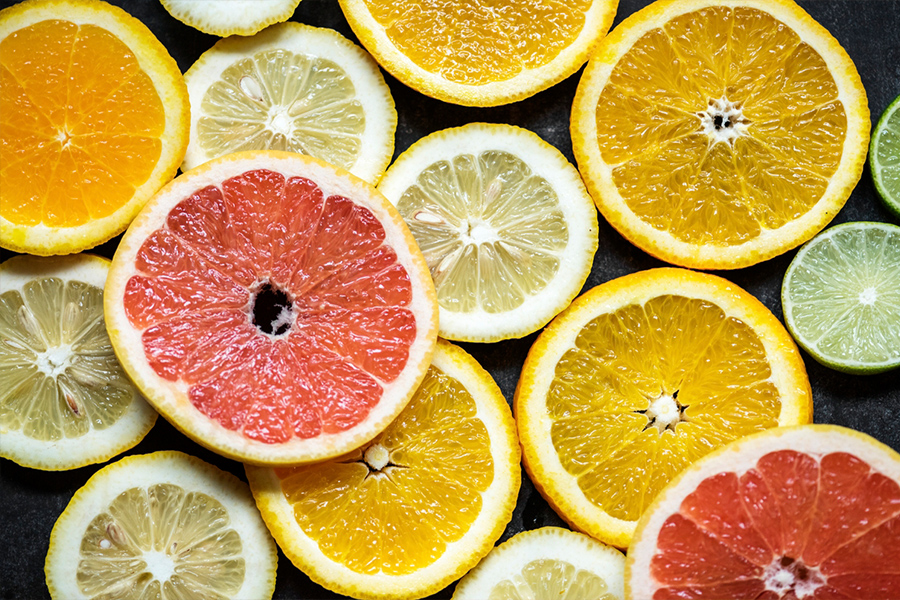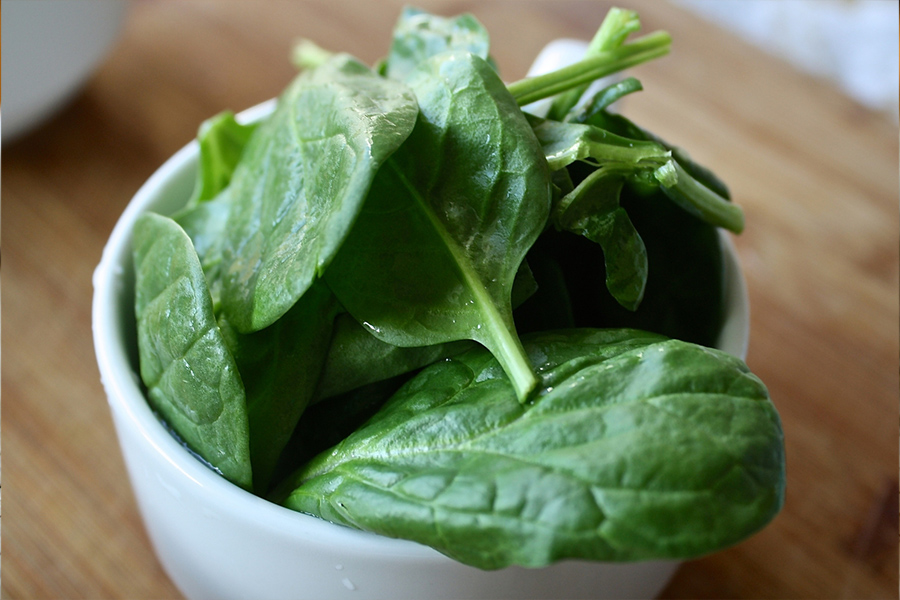
10 Natural Foods That Boost Your Immune System
The immune system is a complex network of cells, tissues, and organs that work together to defend the body against harmful pathogens and keep us healthy. While genetics play a crucial role in determining the strength of our immune system, a healthy lifestyle and a well-balanced diet can significantly contribute to its effectiveness. In this blog, we will explore ten natural foods that have been shown to boost the immune system. This helps us fight off infections and stay resilient against illnesses. We will also address possible food sources that carry a negative impact on the immune system. Lastly, we will provide you food consuming timeline, so you know what to eat and when to eat to get the best out of each group.

Citrus Fruits
Citrus fruits, such as oranges, lemons, grapefruits, and limes, are rich sources of vitamin C. This essential vitamin is well-known for its immune-boosting properties. Vitamin C stimulates the creation of white blood cells, which are vital for combating infections. Additionally, it acts as an antioxidant, protecting cells from damage caused by harmful free radicals. Including citrus fruits in your diet can help enhance your body’s defense mechanisms and keep illnesses at bay.
Yogurt
Yogurt is a probiotic-rich food that supports gut health and, in turn, boosts the immune system. The gut houses a massive portion of the body’s immune cells, and maintaining a healthy balance of beneficial bacteria is crucial for optimal immune function. Choose plain, unsweetened yogurt with live cultures to maximize the benefits.
Garlic
For centuries, Garlic has been used as both a culinary ingredient and a medicinal herb. It contains a compound called allicin, which is known for its antimicrobial and immune-enhancing properties. Consuming garlic regularly can help bolster the immune system and may also reduce the severity and duration of common colds and flu.
Berries
Berries, such as blueberries, strawberries, and raspberries, are rich in antioxidants and phytochemicals that promote immune health. These colorful fruits help neutralize harmful free radicals and reduce inflammation, providing a protective effect on the immune system.

Spinach
Leafy greens like spinach are packed with vitamins and minerals essential for immune function. Spinach is an excellent source of vitamin C, beta-carotene, and vitamin E, all of which play vital roles in supporting immune health. Additionally, spinach contains powerful antioxidants that help protect the body against cellular damage and inflammation.
Sweet Potatoes
Sweet potatoes are a major source of beta-carotene, a precursor to vitamin A. Vitamin A is essential for maintaining the health of the skin and mucous membranes, which function as the body’s first line of defense against pathogens. Incorporating sweet potatoes into your diet can help fortify these barriers and enhance immune response.
Ginger
Ginger is a versatile spice with potent anti-inflammatory and antioxidant properties. It has been used in traditional medicine to strengthen the immune system and alleviate symptoms of respiratory conditions. Incorporating ginger into your diet, whether in teas, soups, or stir-fries, can provide your body with valuable nutrients to maintain a robust immune response.
Almonds
Almonds are nutritional powerhouses that provide a good dose of vitamin E, which is essential for maintaining a healthy immune system. Vitamin E acts as an antioxidant, protecting the body’s cells from damage and supporting the body’s natural defense mechanisms.
Turmeric
Turmeric is a bright yellow spice widely used in traditional Indian and Asian cuisines. It contains an active compound called curcumin, which has potent anti-inflammatory and antioxidant effects. Regular consumption of turmeric can help modulate the immune system and improve overall immune function.
Green Tea
Green tea is celebrated for its numerous positive health benefits on the immune system. It contains catechins, which are potent antioxidants that support immune function and may help prevent infections

Will Any Specific Food Harm My Immune System
While I am sure we all know some “bad” foods that can single-handedly destroy the immune system, certain dietary choices can weaken immune function or have negative effects on overall health when consumed in excess. Here are five foods that, when consumed excessively or as part of an unhealthy diet, can potentially have a negative impact on the immune system:
Sugar:
There are links from diets high in added sugars to increased inflammation and a weakened immune response. High sugar intake can also suppress the activity of white blood cells, reducing their ability to fight off infections effectively. Say goodbye to the candy bars.
Processed Foods:
Highly processed foods, such as fast food, packaged snacks, and sugary beverages, often contain excessive amounts of unhealthy fats, refined carbohydrates, and added sugars. These foods can contribute to inflammation and may weaken immune function over time. Say goodbye to the hamburger in the bag. Say goodbye to sweetened snacks in a box.
Sodas and Sugary Drinks:
Regular consumption of sugary sodas and sweetened beverages has been associated with various health issues, including obesity and type 2 diabetes, which can indirectly impact immune function. Say goodbye to the canned sodas.
Excessive Alcohol:
Chronic and excessive alcohol consumption can impair the function of immune cells, making the body more susceptible to infections and slowing down the recovery process. Ouch, say goodbye to the overindulgence of your favorite spirit.
Trans Fats:
Trans fats, often found in fried and processed foods, have been shown to trigger inflammation and compromise immune health when consumed in massive quantities. Say goodbye to French fries.
It is important to note that moderation is key. Occasional indulgence in less healthy foods is generally acceptable but making them a staple of your diet can have long-term negative effects on your overall health and immune system. A balanced diet that includes a variety of nutrient-rich whole foods is crucial for supporting optimal immune function and overall well-being.

Does The Immune System Have a Weak Point in The Day
The immune system does not have a specific time of day when it is universally weakest for everyone. However, certain factors can influence the immune system’s function and make it relatively less effective during specific periods:
Morning: Some research suggests that certain components of the immune system, such as natural killer (NK) cell activity, may be lower in the morning. NK cells play a crucial role in detecting and eliminating infected or abnormal cells in the body. This reduced activity might be due to the circadian rhythm, the body’s internal clock that regulates various physiological processes.
Afternoon: In the early afternoon, there might be a slight dip in immune system activity. This could be attributed to natural variations in hormone levels and body temperature that can impact immune function.
Late Night or Lack of Sleep: The immune system can be compromised by inadequate or poor-quality sleep. During deep sleep stages, the body undergoes processes that support immune function and tissue repair. Chronic sleep deprivation can weaken the immune response and make the body more susceptible to infections.
Stressful Times: During periods of prolonged stress, the immune system can become compromised. Stress hormones like cortisol can suppress immune function, making it less effective at fighting off pathogens.
After Intense Exercise: While regular moderate exercise can strengthen the immune system, intense and prolonged exercise might temporarily suppress immune function. This phenomenon is often referred to as the “open window” of immune vulnerability, where the body’s defenses are temporarily lowered after intense physical exertion.
It is important to note that these fluctuations in immune function are generally subtle and may not significantly impact overall health for most people. A well-balanced lifestyle that includes a nutritious diet, regular exercise, sufficient sleep, and effective stress management can help maintain a robust immune system throughout the day.
Individual factors such as age, overall health, and specific health conditions, can influence how the immune system responds to several factors at various times of the day. If you have concerns about your immune health, it is best to consult with a healthcare professional for personalized advice and guidance.
Creating a daily timeline for consuming immune-boosting foods can help ensure you get maximum benefits from each nutrient throughout the day. Remember, it is essential to maintain a balanced diet that includes a variety of whole foods, not just those listed below.

Here is a sample daily timeline to help you incorporate these immune-boosting foods into your daily routine:
Breakfast (8:00 AM):
Start your day with a glass of freshly squeezed orange juice or a whole orange. The vitamin C in citrus fruits will give your immune system an early boost, helping to protect against infections.
Enjoy a bowl of yogurt topped with a handful of berries (blueberries, strawberries, or raspberries). The probiotics in yogurt support gut health, and the antioxidants in berries help neutralize harmful free radicals.
Mid-Morning Snack (10:30-11:30 AM):
Grab a handful of almonds or mix them into a trail mixed with some dried berries for a satisfying and nutritious mid-morning snack. Almonds’ vitamin E content supports immune health and provides a good dose of healthy fats.
Lunch (1:00 PM):
Incorporate garlic into your lunch by adding minced garlic to your salad dressing, soup, or stir-fry. The antimicrobial properties of garlic can help protect against infections.
Serve a side of sautéed spinach with your main meal. The vitamins and antioxidants in spinach contribute to a robust immune response.
Afternoon Snack (3:00-4:00 PM):
Brew a cup of green tea to enjoy as an afternoon pick-me-up. The catechins in green tea support immune function and provide a gentle boost of energy.
Dinner (7:00 PM):
Prepare a delicious main course with a turmeric-spiced dish. Turmeric’s curcumin content has anti-inflammatory and antioxidant effects that contribute to immune support.
Include sweet potatoes as a side dish or incorporate them into your main meal. The beta-carotene in sweet potatoes helps maintain the health of your skin and mucous membranes.
Evening Snack (8:30-9:30 PM):
Before winding down for the night, have a ginger-infused herbal tea. Ginger’s anti-inflammatory properties can help soothe your digestive system and promote better sleep, which is vital for overall immune health.
These timings are just a suggestion, and you can adjust them to fit your daily routine and preferences. It is also essential to complement these immune-boosting foods with other nutrient-rich options to create a well-rounded and balanced diet. Stay consistent with your healthy eating habits, stay hydrated, exercise regularly, and prioritize adequate sleep to support your immune system and overall well-being effectively.
Taking care of our immune system is an initiative-taking approach to safeguarding our health and well-being. The foods we consume play a crucial role in supporting our immune system’s effectiveness. By incorporating immune-boosting foods like citrus fruits, yogurt, garlic, berries, and spinach into our daily diets, we can fortify our body’s natural defenses against infections and illnesses.
The urgency to start today rather than wait lies in the power of prevention. Waiting until we fall sick to pay attention to our immune health can be a costly mistake. A robust immune system acts as a shield, fending off potential threats before they escalate into full-blown health issues. By nourishing our bodies with these nutritious foods, we equip ourselves to manage whatever challenges come our way.
Be patient, building a strong immune system is not an overnight process. It requires consistent effort and a sustainable lifestyle. The sooner we embrace healthier food choices and habits, the more time our bodies must adapt and strengthen their immune response. Minor changes made today can have a compounding effect, leading to greater immunity and improved overall health in the future.
As we face an ever-changing world with new pathogens and health challenges, investing in our immune system’s well-being is paramount. Let us take charge of our health by making conscious choices to fuel our bodies with the nutrients they need to thrive. By starting now, we seize the opportunity to empower ourselves and take an active role in shaping a healthier and more resilient future.
I am not a licensed medical professional, and the information I provide should not be considered as a substitute for professional medical advice, diagnosis, or treatment. For any medical concerns or conditions, please consult a qualified healthcare provider.
